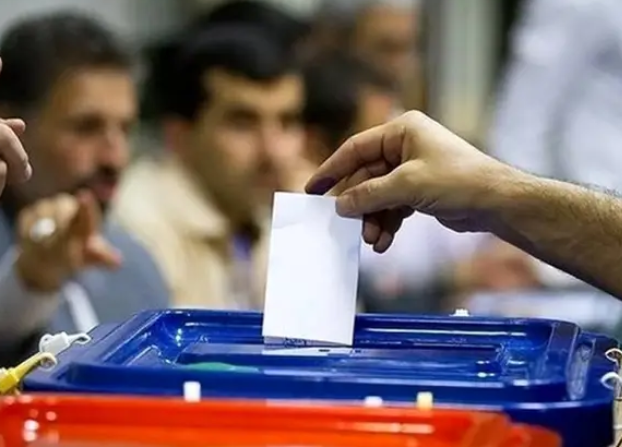- Constitutional Council spokesman visits Tehran Times anniversary exhibition
- ‘A Historic Day and A Valuable Legacy for Resistance’
- Spokesperson criticizes international community's inaction over US, Israel’s atrocities
- Right to resistance a legitimate struggle for liberation from domination: Tahan Nazif
Iranians gearing up for key polls to shape their future

In a momentous display of democratic principles, Iran is poised for its highly anticipated Friday vote on March 1st, as citizens prepare to elect new members for both the Parliament and the Assembly of Experts.
With an astonishing 15,000 candidates approved by the Constitutional Council, representing a diverse range of professionals, Iran's electoral landscape is brimming with fierce competition, promising to reshape the nation's future in unprecedented ways.
The candidates will compete for 290 seats of the parliament, five of which represent religious minorities namely Jews, Assyrians, Zoroastrians, and Armenians. They are elected for a four-year term.
Hundreds of candidates are also vying for 88 seats in Iran’s Assembly of Experts, a body with an eight-year mandate that is in charge of overseeing the activities of the Leader of the Islamic Revolution and is in a position of authority to either appoint or dismiss the Leader.
The resounding call from Leader of the Islamic Revolution Ayatollah Ali Khamenei to the nation cannot be understated. Urging “massive turnout” in the forthcoming elections, Ayatollah Khamenei emphasizes the paramount importance of mass involvement, transcending the mere selection of individual candidates. The call by the Leader serves as a poignant reminder of the pivotal role that every citizen plays in steering the country's political trajectory.
The sheer magnitude of candidates approved for the elections serves as a testament to the cutthroat nature of the political arena at the national level. With an array of professionals ranging from doctors and engineers to civil servants and educators, Iran's evolving political landscape is set ablaze with a fervent competition of ideas and aspirations. This diverse pool of candidates ignites a spirited contest, enriching the electorate by offering an extensive array of perspectives and policy proposals.
The involvement of numerous political parties further amplifies the significance of this democratic event within Iran. As political factions and unaffiliated professionals vie for support, the electoral process becomes a battleground for ideologies and visions, where candidates must earn the trust and endorsement of the people. This multiparty dynamic ensures that the election is not a mere formality but a defining moment where competing visions for the nation's future clash head-on.
At this pivotal crossroad, Iran's unyielding commitment to democratic principles shines through. Ayatollah Ali Khamenei's impassioned call for widespread participation in the upcoming elections, coupled with the remarkable number of approved candidates, serves as a testament to Iran's steadfast dedication to fostering a vibrant and all-inclusive political landscape. With the stage meticulously set for a historic and potentially transformative electoral process, the choices made by the Iranian people will reverberate throughout the nation's trajectory for years to come.
In conclusion, Iran's Friday vote heralds a watershed moment in the nation's political narrative. The resounding call from the Leader reverberates, highlighting the nation's unwavering commitment to democratic ideals and ensuring that the voices of all citizens resound. With an impressive array of candidates hailing from diverse backgrounds, these elections hold the promise of a pulsating and inclusive political landscape. As Iran's political parties and unaffiliated professionals vie for support, the stage is set for a historic and transformative electoral process that will irrevocably shape the future of the nation.
Article Six of the Iranian Constitution reiterates that the administration of the affairs of the Islamic Republic of Iran should be based on the public opinion expressed by the means of elections.
Iran has held 40 rounds of different elections, including presidential and parliamentary ones, since the victory of the Islamic Revolution in 1979.